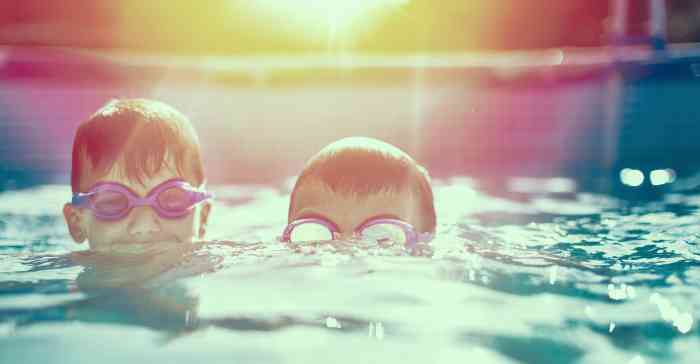
Managing moisture
Picture this: It’s a beautiful summer day. You’re lounging by the pool, listening to sounds of laughter and splashing, when you decide to take a dip. As soon as you hit the water, you remember—you’re still wearing your hearing aids! Maybe you work up a sweat after a long morning of gardening under the hot sun, or happen to get caught in your grandkids’ lawn sprinkler fun.
Whether you’re at the pool, tending to the yard or at the mercy of little ones just out of the water, your hearing aids will inevitably come in contact with moisture this summer. While many hearing aids are designed to repel light moisture, an excessive exposure to water, humidity and sweat can cause damage, kill your batteries and invite unwanted bacteria growth. Having a game plan for proper hearing aid care will help you keep your devices in top shape as you enjoy your favorite summer activities.
How can I keep my hearing aids dry?
There are a variety hearing aid tools specifically designed to protect from and eliminate moisture. Keep these accessories handy along with your sunglasses and sunscreen:
- Hearing aid dry box: A container for both storing and dehumidifying your devices
- Hearing aid covers: Sometimes called hearing aid headbands or sleeves, these slip over your hearing aids to protect them from dirt and moisture.
- Hearing aid cord and clip: These keep your hearing aids attached to your clothing, so you don’t have to worry about them falling off and getting lost.
- Portable waterproof container: For storing your devices around wet areas
Models that sit outside the ear (BTE, RIC) tend to be the most vulnerable to moisture—as the electrical components are housed outside the ear—whereas custom models such as CIC and IIC sit far enough in the ear that they are shielded from rain, sweat, etc.
How to clean wet hearing aids
If you do accidentally end up with wet hearing aids, don’t panic—they aren’t necessarily damaged beyond repair. Here’s what to do:
- Turn off your hearing aid and discard the battery. A wet battery can cause further damage to your device.
- Gently dry your hearing aid with a towel. If it has fallen into dirty, salty or soapy water, gently rinse it with clean water before drying it off.
- Use a hearing aid dry box or hearing aid drying kit to completely remove moisture. Put your hearing aids into the dryer with the battery door open and allow to dry overnight. Don’t have a hearing aid dryer? You can use the old method of placing them in uncooked rice or leave them to air dry for 24 to 48 hours. Never use an oven, microwave or hot blow dryer to dry your hearing aids, as strong heat can be even more damaging than water.
- Once your device is dry, install fresh batteries. Check to make sure your device is working properly. Water-damaged hearing aids will produce distorted, crackling sounds.
- If you still experience issues, consult your hearing aid provider.















